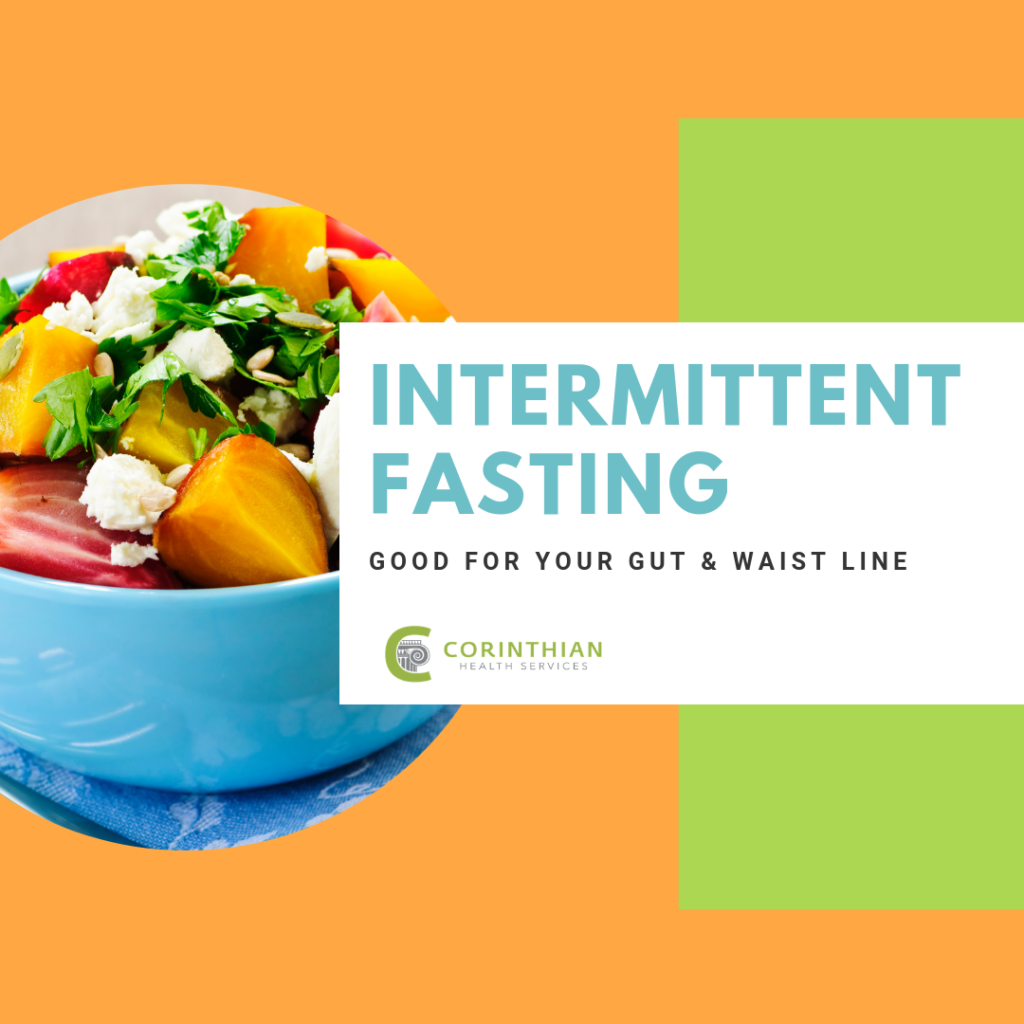 What is Intermittent Fasting? Have you heard of it? The latest craze to hit the diet scene is so much more than just a craze, it’s a lifestyle. According to the American Autoimmune Related Disease Association, there are over 50 million Americans with an autoimmune disease. That number is insane! Eating three large meals a day (plus snacks), mix that with a sedentary lifestyle, and what do you get? Poor health and large pants. No, thanks!
What is Intermittent Fasting? Have you heard of it? The latest craze to hit the diet scene is so much more than just a craze, it’s a lifestyle. According to the American Autoimmune Related Disease Association, there are over 50 million Americans with an autoimmune disease. That number is insane! Eating three large meals a day (plus snacks), mix that with a sedentary lifestyle, and what do you get? Poor health and large pants. No, thanks!
Our bodies are not meant to consume such large portions at each meal daily. The majority of Americans are not working in the fields, doing manual labor from sun up to sun down. Why are we eating like we do though? It is no wonder that our GI system can’t keep up.
Intermittent Fasting is more about when you eat every day versus what you eat. Now, this doesn’t mean that as long as you are restricting the time frame of your meals that you can stuff your face with donuts the whole time. Eat Responsibly. According to Dr. Joseph Mercola: Intermittent Fasting involves cutting calories in whole or in part, either a couple of days a week, every other day, or even daily. Just take a look at the numerous benefits that come your way by cutting calories:
- Reset your body to burn fat for fuel
- Improve your cardiovascular health
- Reduce your cancer risk
- Lessens the side effects of chemotherapy
- Regulates your insulin levels
- Lowers risk of Type 2 Diabetes
- Reduces inflammation in your body
Here is some good news for all of you who suffer from autoimmune diseases (myself included). Researchers from the University of Southern California performed a study that shows that fasting induces immune system regeneration by shifting stem cells from a dormant state to a state of self-renewal.
There are different options of Intermittent Fasting. You should research each to find the one that you will be able to do consistently.
The 5:2 Intermittent Fasting Plan
The 5:2 Intermittent Fasting Plan involves eating normally (not bingeing on junk food, obviously), and fasting for two days. The two days are dispersed the week, as doing them together would be difficult for anyone to maintain. During fasting days, it is recommended that you cut your calorie intake to 500 calories/day for women and 600 calories/day for men. Here is a sample schedule from Dr. Michael Mosley’s book The Fast Diet: Lose Weight, Stay Healthy, and Live Longer with the Simple Secret of Intermittent Fasting.

Alternate Day Fasting
The Alternate Day Fast is a form of Intermittent Fasting that has become quite popular. It essentially involves rotating fasting days with non-fasting days. One day you eat normally, the next day you are limited to 500 calories, and then the next day you are back to a non-fasting day (you get the picture). Dr. Krista Varady, author of The Every-Other-Day Diet: The Diet That Lets You Eat All You Want (Half the Time) and Keep the Weight Off, recommends this form of fasting, as her research shows that Alternate Day Fasting works equally well for weight loss, and is easier to maintain this type of fasting regimen.
Specific Time Window Fasting
The type of fasting that Dr. Joseph Mercola, as well as several of us at Corinthian Health Services practice, is Specific Time Window Fasting. This type of fasts means that you are limiting the time that you eat during the day and then fast for 12-16 hours. Fasting the 12-16 hours allows your gut to rest and heal between each day. Why we love this form of fasting so much, is that the fast time includes sleep! You would ideally start with the 12-hour fast, so for example, you would not eat or drink anything except water from 7pm-7am. Over time you will work yourself up to fasting for 16 hours, the times that you would eat each day would be from 11am-7pm.
You have heard time-and-time again that “Breakfast is the most important meal of the day”, but research is proving that that is not necessarily true. You can actually benefit so much more in the long run if you skip it. We know that for many of you that breakfast foods are usually the most satisfying, but when you weigh in all of the amazing benefits, it is best just to put the fork down and wait a few more hours. Don’t forget, you can always have breakfast for dinner!